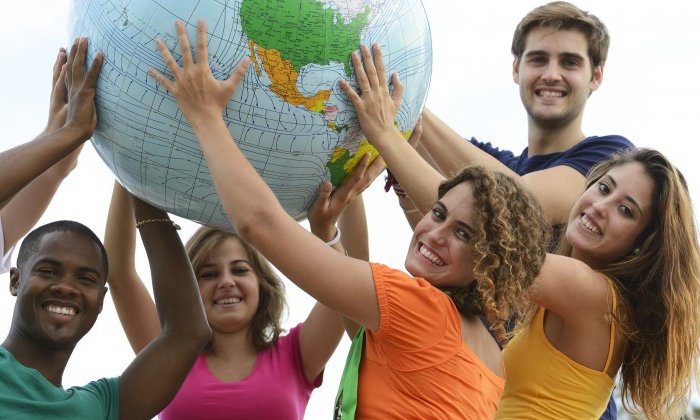Today, I went for a swim in Thailand’s paradise Island Koh Phangan. However, during my swim, I could not ignore or escape all the trash that hit me in the face.
As usual, I picked up whatever trash I saw and put in my pocket to throw it away later. Then, I saw a big shopping bag floating next to me and started to put all the trash into that big bag. After an hour of this, I retired with 5 kilos of trash.
Why do I share this?
I don’t want to show off how cool I am and that I am superior to other human beings who don’t stop enjoying their vocations to pick up trash on a beach of the country that is not their own, a beach they probably will never return to. I do it, pick up trash always, wherever I go. This is just one time I documented it.
The reason I share this is that I want to inspire people to do the same. Indeed, most people who come to the island complain about trash or ignore it. But, even in these remote places, we can’t escape the impact of our “civilized living.”
We are all responsible.
“But, I am not responsible for this empty bag of chips,” – someone will say. “I don’t even eat potato chips.”
You are responsible. I don’t want to look at how much trash a single person produces per day, month, year, or lifetime, but it is a lot of waste! Also, even if we are careful and do our best to recycle everything, the recycling system is not that efficient… In most parts of the world, governments can only recycle less than 30% of their trash. So what do you think happens to the other 70%? Even in the most efficient recycling country in the world, United Kingdom, the government only manages to recycle 60-80% of all its trash. But what about the other 20-40%?
So maybe it’s not your trash beg that swims in the ocean, but your trash is somewhere negatively affecting the world. So why don’t we pick up each other’s trash and call it the truth? Personally, by picking up 5kg of garbage, I can’t even begin to do my right in terms of how I affect the planet, but I can do something.
We can’t do it all, but we can do something.
With the logic presented until now, one conclusion we may come up with is to go out and try to help others whenever we can. But, in my opinion, this is not the most effective way to go about it.
First of all, I genuinely believe that I can help more others later by helping myself first. Thus, I should not forget about my own needs and give my last socks away, as then I just become a burden on someone else. There are already too many people like this globally, so if we can help it, let’s be part of the solution, not the problem.
Furthermore, I am only one man, and my efforts can only have that much impact. Therefore, I should not try to save the animals, clean the trash, protect the forest, give to charity, etc. Instead, we should be picky about fighting the battles we want to fight and the ones we can win.
I know my strength and motivations, and I do my part in life areas where I believe I can deliver the most benefit to others. I try to make people happier. I try to find solutions for world overpopulation problems. I pick up occasional trash from the sea, and I write rare motivational blog posts/books that will inspire others to do the same. This targeted approach is better and more effective in the long-term than spending hours fishing trash from the sea.
Conclusion: there are more motivated and competent people to do other social responsibilities, but we should ALL have something we are doing to improve the world. This will not only make the world better but make us happier in the process.
Social responsibility in the service of Happiness
When Mother Teresa or Mahatma Gandhi were fighting to change the world, they were not doing it for themselves or their Happiness. Still, surprisingly, they were happier because they were selfless.
Oppositely, most people are trying to be egoistic. We are all always thinking about “I want” and “my, my, my.” We dream about the next big purchase, but this sort of thinking is not making us any happier.
This is consistent with research on Happiness. Studies support that more often than not, selfless altruism leads to Happiness, while egoism leads to no other happiness, and even occasional unhappiness[1].
This is because we already have a lot more often than not, even though we don’t realize it. Adding more to this, “a lot” does not make a significant difference. However, giving some of what we have a way (time, money, or energy) can make a substantial difference in their lives for someone who needs it.
Moreover, we become happier to help a fellow man because we are biologically programmed to live in a tribe and to have our Happiness correlate to the sense of Happiness of others around us. Indeed, back in the day, if the tribe was doing wrong, we were often doing evil and the other way around. This became just a natural part of our Happiness programming, which makes altruism one of the surest ways to personal Happiness [2].
Conclusion
In my other post, I mentioned that social responsibility should be a legal obligation to individuals and companies. As such, people should be legally obliged to spend at least 1h per week doing something which will benefit everyone. Similarly, companies should support some charity or social responsibility movement by donating commercial airtime to social responsibility movements.
Still, while this may not be the case right now, we should do our part by giving back to Mother Earth, which already gave us so much. We can pick up ONE piece of the trash whenever we are on the beach and support ONE social responsibility movement. We should ALL have at least ONE.
So, which charity / social responsibility movement do you support?















